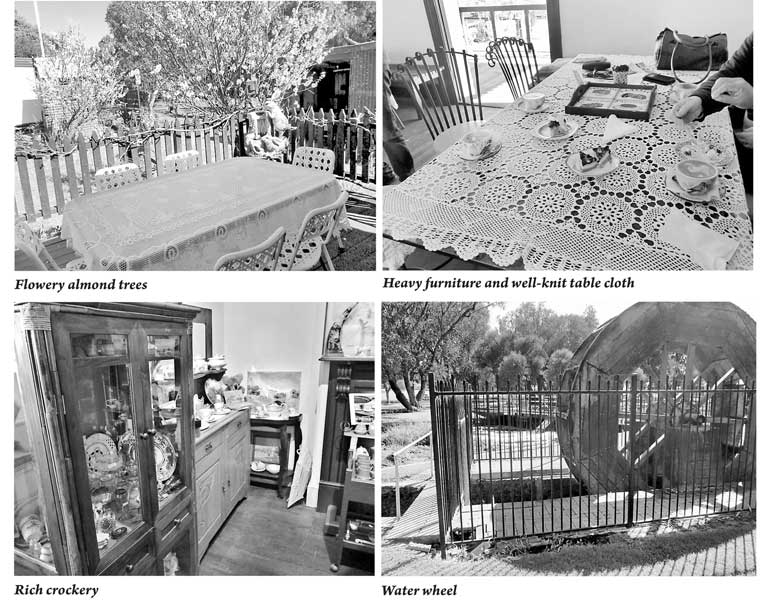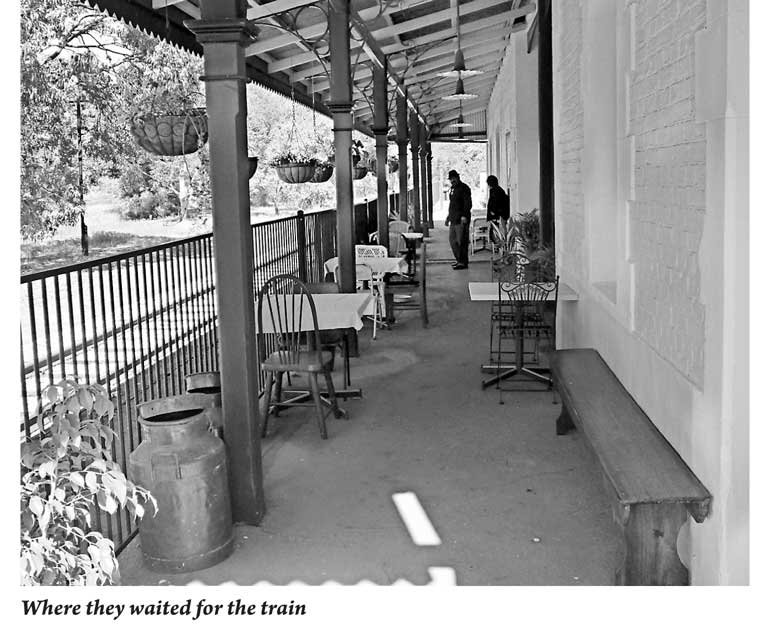Monday Feb 16, 2026
Monday Feb 16, 2026
Saturday, 26 August 2017 00:58 - - {{hitsCtrl.values.hits}}
 As the winter ends and there are signs of a clear day, most people in the city prefer to drive off to spend the day in a quiet place. We did the same last Sunday and decided to go north for a day out. Our destination was Lancelin, a popular tourist destination a little over 125km from Perth, capital of Western Australia.
As the winter ends and there are signs of a clear day, most people in the city prefer to drive off to spend the day in a quiet place. We did the same last Sunday and decided to go north for a day out. Our destination was Lancelin, a popular tourist destination a little over 125km from Perth, capital of Western Australia.
Our first stop was an agricultural town called Gingin. As we approached the area, we turned in to the Information Centre which is meant as a place to relax after a long drive. A well- illustrated map indicated the interesting places to visit. Opposite was a large livestock farm where lot of cattle were grazing.
We had been driving for about an hour and it was ideal time to have a cup of coffee. Looking round for a café we found a board alongside the railway station. We drove in and went in to find that the station was no longer in operation but the look of a typical 19th century train station is intact.
The spotlessly clean long platform is well arranged with old furniture and old style hanging flower pots. With no one to be seen around we spotted a room closed with the board ‘Station Master’ on the door. We tapped and went in and were greeted by a female who led us to the kitchen where we could order coffee and snacks.

Home-made cakes were tempting and we ordered coffee and cakes. When the hot coffee and neatly arranged cakes were served, we were given extra pieces of cake free. ‘With our compliments,” the female said.
Browsing around we soon realised it’s an antique shop with each room (five in all) filled with different types of vintage household goods ranging from crockery, artistic items made of timber, and a variety of curios. One room was devoted to garments which are currently produced locally.
Even the attached wash room in one of the rooms has been nicely converted into a display room leaving behind a small wash basin, obviously to give the place an old look. The ticketing office had a heater belonging to the era when passenger trains were plying. Now no passenger trains operate – only a couple of goods trains transporting agricultural produce.
A board displayed on the wall described how construction work started in 1866 and completed in 1891. A ‘commendation’ received in 1892 states: “The station which the Midland Railway Company has built is a model of convenience. Compared with central station the balance is in favour of Gingin. The architecture is plain, but it is evident that comfort and convenience have been studied everywhere.”

It also mentions that as the trains crossed over on scheduled days, the railway station was a very busy place.
A barbed wire fence now prevents anyone crossing the rail track. Right behind, adjoining the kitchen is an open area to have refreshments. A tiny waterfall with a rabbit and two almond trees in full bloom with white flowers create a beautiful environment.
Gingin Brook flows through a park where a replica of the water wheel used to drive a flour mill two kilometres away in a farm in the mid-1850s has become a popular tourist attraction.
With a history of 181 years, the first European to visit the area had been an explorer, George Fletcher Moore by name, who had recorded the aboriginal name of the area as ‘Jinjin’. The first property to be established in the area by W. L. Brockman in 1841 was named Gingin station. The meaning of the word Gingin is uncertain but is thought to mean “footprint” or “place of many streams”.
After walking through the park and having a good look at the rather sleepy town, we started off for Lancelin.